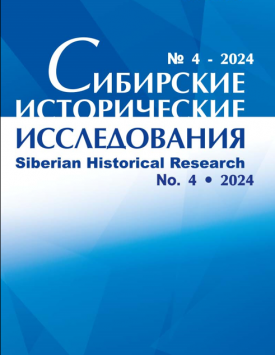Recent Books on Digital Research Methodology for Social Scientists: An Overview
The article presents a brief consideration of recent methodological publications on digital methods in social sciences and humanities, written by the leading specialists in the field of contemporary digital media research. The methods discussed are often subdivided into two main groups, the first one referring to uniquely digital methodologies applied by social scientists for understanding digital technologies and their roles in such disciplines as science and technology studies, techno-anthropology, anthropology and sociology of media, etc.; the second one, pertaining to traditional methods of social and cultural research, is applied to new cyber-media and thus adapting and transforming these methods to what is perceived (compared to classical fieldwork sites and locations) as a radically new environment. The review is focused on the current needs of digital anthropological research, although it is not limited to socio-cultural anthropology and ethnology. As each of the publications and/or methods discussed is adjusted to a certain range of objects or subjects of study that could be thematically classified, their inclusion in this review pays attention to such thematic fields as cyberidentity, users’ interests and behavior, digital mediation, ethics of online research, and societal and technological innovation and change. The author declares no conflict of interests.
Keywords
digital media,
cyberidentity,
digital technologies,
culture of everyday,
online research methods,
digital anthropology,
Internet studiesAuthors
| Sokolovskiy Sergei V. | Institute of Ethnology and Anthropology, Russian Academy of Sciences | SokolovskiSerg@gmail.com |
Всего: 1
References
Ardevol E., Gomez-Cruz E. (2014) Digital Ethnography and Media Practices (ch. 22). In Darling-Wolf F. (Ed.). Vol. VII. Research Methods in Media Studies. John Wiley & Sons (Valdivia A.N. (Gen. ed.) The International Encyclopedia of Media Studies, in 7 vols.). URL: https://onlinelibrary.wiley.com/doi/book/10.1002/9781444361506.
Barney D., Coleman, G., Ross, C., Sterne, J., & Tembeck T. (Eds.). (2016) The Participatory Condition in the Digital Age. Minnesota: University of Minnesota Press.
Boellstorff T. (2008) Coming of Age in Second Life: An Anthropologist Explores the Virtually Human. Princeton: Princeton University Press.
Boellstorff T. (2012) Rethinking Digital Anthropology. In Horst, H., & Miller, D. (Eds.). Digital Anthropology. N.Y.: Berg. pp. 39-60.
Boellstorff T., Nardi, B., Pearce, C., & Taylor, T.L. (2012) Ethnography and Virtual Worlds: a Handbook of Method. Princeton: Princeton University Press.
Boellstorff T., & Maurer B. (2015) Data, Now Bigger and Better! Chicago: Prickly Paradigm Press.
Boellstorff T., & Soderman B. (2024) Intellivision. How a Videogame System Battled Atari and Almost Bankrupted Barbie. Cambridge, MA: MIT Press.
Coleman E.G. (2010) Ethnographic approaches to digital media. Annual review of anthropology, 39(1), pp. 487-505.
Coleman E.G. (2012) Phreaks, hackers, and trolls. In M. Mandiberg (ed.). The social media reader. N.Y.: New York University Press. pp. 99-119.
Coleman E.G. (2013) Coding freedom: The ethics and aesthetics of hacking. Princeton: Princeton University Press.
Coleman E.G. (2015) Hacker, hoaxer, whistleblower, spy: The manyfaces of Anonymous. N.Y.: Verso books.
Dawson C. (2020) A-Z of digital research methods. N.Y.: Routledge.
Ferraris M. (2014) Where are you? An Ontology of the Cell Phone. N.Y.: Fordham University Press.
Fielding, N.G., Lee, R.M., & Blank, J. (Eds.) (2018) The SAGE Handbook of Online Research Methods. L.: SAGE.
Fischer, M. (1994). Applications in Computing for Social Anthropologists. L.: Routledge.
Foster R.J., & Horst, H. (Eds.) (2018) The Moral Economy of Mobile Phones: Pacific Island Perspectives. Acton: ANU Press.
Hine, C. (2000) Virtual Ethnography. L.: Sage.
Hine C. (2015) Ethnography for the Internet: Embedded, Embodied and Everyday. L.: Bloomsbury.
Hine C. (Ed.). (2005) Virtual Methods. Issues in Social Research on the Internet. N.Y.: Berg.
Hjorth L., Horst, H., Galloway, A., & Bell, G. (Eds.) (2017) The Routledge Companion to Digital Ethnography. N.Y.: Routledge.
Horst H. (ed.) (2009) Hanging Out, Messing Around and Geeking Out: Kids Living and Learning with New Media. Cambridge, MA: MIT Press.
Horst H., & Miller, D. (2006) The Cell Phone: An Anthropology of Communication. Oxford: Berg.
Horst H., & Miller, D. (2012) Digital Anthropology. N.Y.: Berg.
Ito M., Baumer, S., Bittanti, M., boyd, d., Cody, R., Herr-Stephenson, B., Horst, H., Lange, P., Mahendran, D., Martmez, K., Pascoe, C., Perkel, D., Robinson L., Sims, C., & Tripp, L. (2009) Hanging Out, Messing Around, and Geeking Out: Kids Living and Learning with New Media Cambridge, MA: MIT Press.
Kelty, C. (2008). Two Bits. The Cultural Significance of Free Software. Durham: Duke University Press.
Marcus G. (2012) Foreword. In Boellstorff T. e.a. (Eds.). Ethnography and Virtual Worlds: a Handbook of Method. Princeton: Princeton University Press, pp. XIII-XVII.
Markham A. (1998) Life Online: Researching Real Experience in Virtual Space. N.Y.: Altamira press.
Markham A., & Baym, N, (Eds.) (2009) Internet Inquiry: Conversations about Method. L.: Sage.
Markham A., & Tiidenberg, K. (Eds.) (2020) Metaphors of Internet: Ways of being in the age of Ubiquity. L.: Peter Lang.
Neumaier A. (2022) Digital Ethnography. In Engler, S, & Stausberg M. (Eds.). The Routledge Handbook of Research Methods in the Study of Religion. N.Y.: Routledge. pp. 217-228.
Pink S., Horst, H., Postill, J., Hjorth, L., Lewis, T., & Tachi J. (2016) Digital Ethnography: Principles and Practices.
Snee H., Hine, C., Morey, Y., Roberts, S., & Watson, H. (Eds.) (2016) Digital Methods for Social Science. An Interdisciplinary Guide to Research Innovation. Houndmills: Palgrave Macmillan.
Valdivia A.N. (Gen. ed.) (2014) The International Encyclopedia of Media Studies, in 7 vols. L.: John Wiley & Sons.

